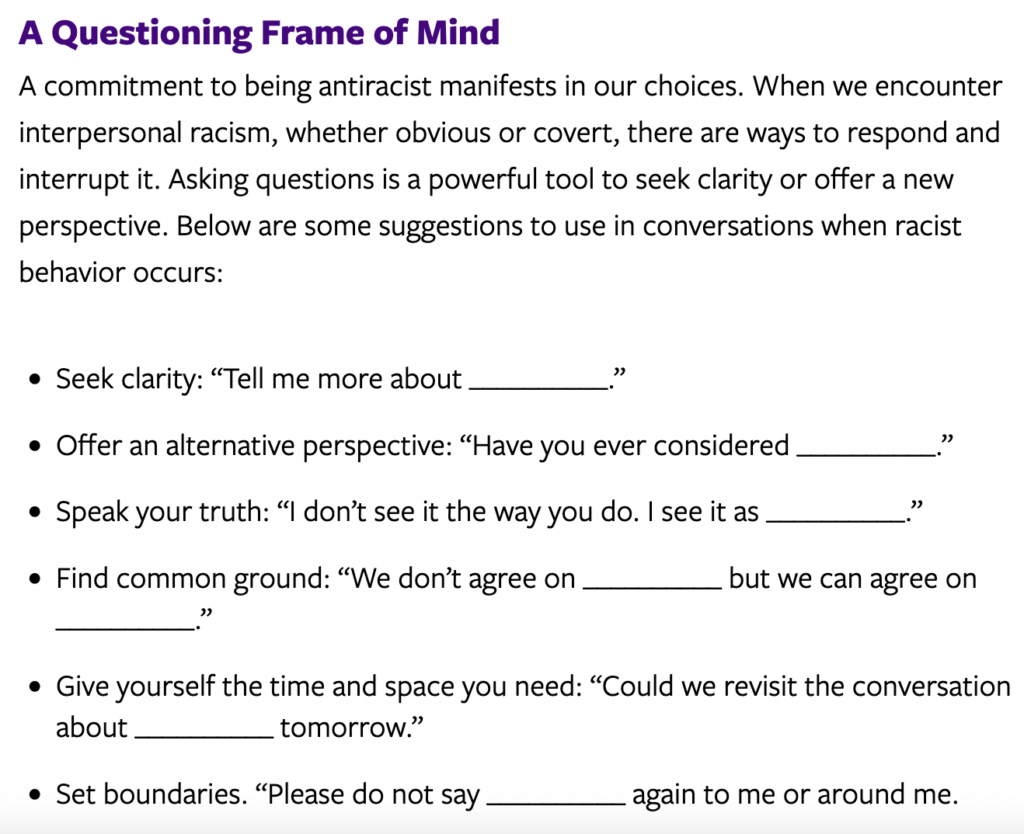You would be hard pressed to find a coach or player who has never witnessed or directly experienced racism in soccer. Racist incidents happen every day, at every level of soccer. This is something that makes soccer less safe for everyone. So let’s talk about racism – what it is, and how it hurts our teammates, our team, our sport, and our society. Just like you have a plan for inclement weather, let’s have a plan for how we will respond when a racist incident occurs in our space.
Inclusive coaching lays the foundations to have hard conversations, to strengthen trust, and to share diverse perspectives. But even with all of these foundations, it is likely that we will experience racist incidents within and around our teams. Antiracist coaches must build on these foundations by proactively educating ourselves about how to recognize and respond directly to racism, and how to take a stand against racism as a team.
– Andrew So, South Bronx United
Each of us must understand that racism exists, and that racist incidents happen every day at every level of soccer
We must learn to recognize and respond directly to incidents of racism
As a team, we must be clear on our stance against racism, and how we will inspire others by our example
The National Museum of African American History & Culture offers a series of resources to support educators entitled: Talking About Race. In this resource, coaches will learn the about four different types of racism and reflect on their own experiences as well as ways to take action.
Being an antiracist coach results from a conscious decision to make frequent, consistent, equitable choices daily. These choices require ongoing self-awareness and self-reflection. In the absence of making antiracist choices, we (un)consciously uphold aspects of white supremacy, white-dominant culture, and unequal institutions and society. Being racist or antiracist is not about who you are; it is about what you do. Through Switch the Pitch, coaches can build on these resources and challenge their team to prevent and respond to racism on the field and off.
Talking About Race: Being Antiracist